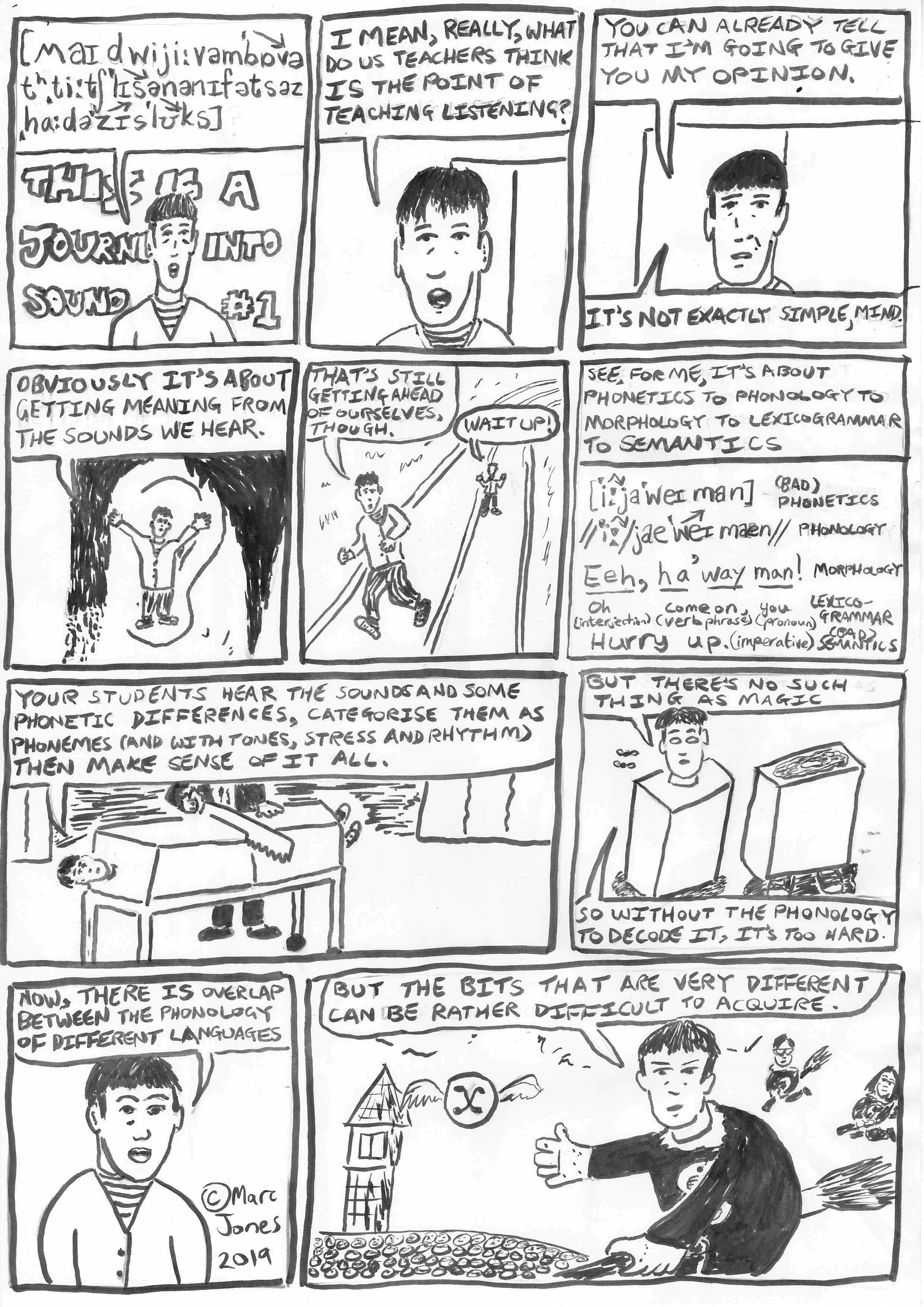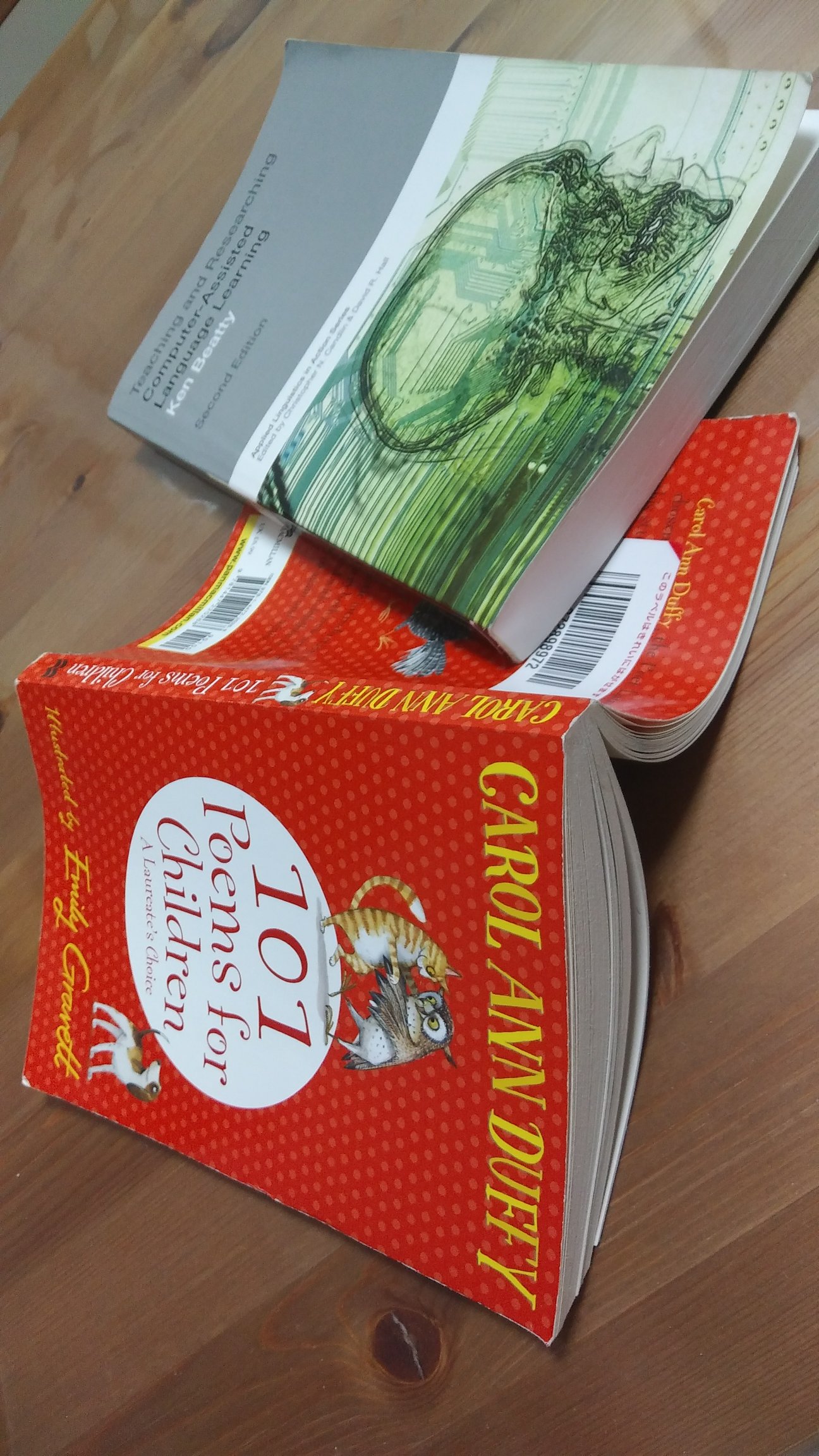Yes, it’s a comic.

Further reading
Best C. T. (1995) A direct realist view of cross-language speech perception, in Strange, W. (ed.) Speech Perception and Linguistic Experience. York Press. 171-206. Retrieved April 25th 2017 from http://www.haskins.yale.edu/Reprints/HL0996.pdf
Best, C.T. & Tyler, M. D. (2007) Nonnative and second-language speech perception. Bohn, O., & Munro, M. J. (Eds.). (2007). Language experience in second language speech learning : in honor of James Emil Flege. John Benjamins.
Flege, J. (1995) Second-language Speech Learning: Theory, Findings, and Problems. In Strange, W. (Ed) Speech Perception and Linguistic Experience: Issues in Cross-language research. Timonium, MD: York Press, pp. 229-273.
Flege, J. (2007) Language contact in bilingualism: Phonetic system interactions. In Cole, J. & Hualde, J. I. (Eds.), Laboratory Phonology Berlin: Mouton de Gruyter, pp. 353-380.
Kuhl P. K., Williams, K.A., Lacerda, F, Stevens, K. N. , Lindblom, B. (1992) Linguistic experience altersphonetic perception in infants by 6 months of age. Science. 1992 Jan 31;255(5044) pp.606-8.
